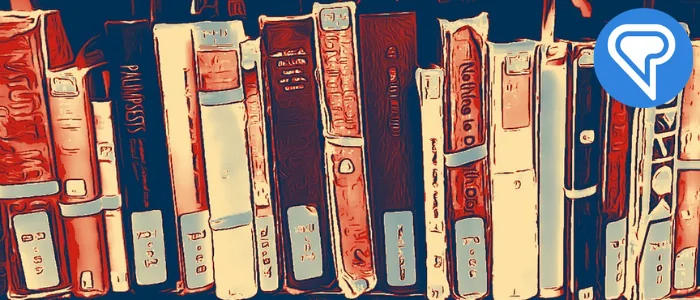Today I want to talk about how language learning has become so much easier today and how it’s going to continue to become easier. First of all, LangFest was a great four or five days for me in Montreal. It’s such a wonderful bilingual city, multilingual city. The people at the conference, of course, there’s this tremendous sort of feeling of everybody wanting to help everybody, everybody wanting to learn from everybody and everybody is learning languages. It’s just positive, a very wonderful feeling.
So language learning is becoming easier. For example, on Sunday it will be exactly three months since I started learning Turkish. If my tutor agrees, I will do a video showing you my progress. I feel now that I am progressing in all of these languages, which are different from French, Spanish, German and whatever and therefore more difficult. I am progressing faster because language learning has become easier for a variety of reasons, one of which, by the way, is our mini stories. There’s no question that these 60 mini stories with so much repetition spoken at a natural tone. You don’t begin with hello, how are you, the colors, you begin right in the language and you stay more or less at that level for 60 lessons. It becomes a little more difficult in that more tenses are introduced, but in a sense you’re gradually just getting used to the language and I find that I’m speaking faster.
There are so many tools available. Just the availability of mp3 and the availability, for example, now that we can access Netflix or for that matter YouTube videos where there are subtitles, closed captions. We can bring those in as lessons and study them at LingQ, for example. There’s just so much more available, which reminds me. I guess a year or two ago it was announced by the Canadian Government that they were going to spend $16 million to produce a language-learning website so that Canadians would become more bilingual. They would learn the other official language. This was part of a $2.7 billion five-year program whereby the Canadian Government felt that they could increase bilingualism outside Quebec from six percent to seven percent, $2.7 billion dollars.
Part of it is this $16 million language-learning website, another $16 million has gone to a thing called the Canadian Language Portal and there was a presentation on this at the LangFest. It just amounts to a less efficient version of Google Translate really, except that to some extent the translations are vetted, but you can look up a dictionary. Their justification is that some usage might not be Canadian and we need to have Canadian usage. Why that matters is absolutely beyond me, but that’s $16 million. Now their website for language learning they say is going to be available in 2020.

So it’s been two years, $16 million, and it turns out that they’ve given this work to the Canadian Broadcasting Corporation or Radio-Canada in French. Well, really, the Canadian Broadcasting Corporation (Radio-Canada) already has fabulous language-learning material. It’s all of their programs that are on YouTube. You can turn on the closed captions and then with our LingQ browser extension you can bring all of that into LingQ as a lesson. Most Canadians have had enough either French or English at school that they have learned that they can probably access these TV programs, if they are interested and motivated. If they are not interested and motivated no language-learning website is going to help them.
I suspect what will happen is that the CBC will take all this money, hire a bunch of people, teachers, develop a whole bunch of exercises, drills, questions, explanations and stuff, which is really (A) not necessary and (B) insofar as explanations because the world of language learning has become so much easier it’s all over the Web. I can put a conjugating dictionary, for example, at LingQ as one of the dictionaries and I do that. For Turkish verbs I go to a conjugating dictionary and I see all the conjugations. I review them quickly and get back to my text. All of those things are already available in this wonderful world of easy language learning.
Of course, I don’t do drills and I’m not convinced that they’re useful. I mean you have only so much time to spend on your language learning, so are you going to spend your time engaging with content or are you going to spend your time answering questions and doing drills. I prefer to spend my time with content. Now, admittedly, the mini stories are not tremendously engaging content, but they are designed with a lot of repetition. We have 60 of them. If there are any people out there who would like to try their hand at writing more in any language we’re willing to pay for that. I’m not going to get into how much or whatever, but I would like to expand that because they are a constant repetition of the key verbs, the key phrases. After all, in learning any language you just need to know how the verbs work, which you can Google for, how the nouns and adjectives work, which you can Google for, the preposition, the pronouns and how they work. There are only a few things that matter. The word order you get a sense of very quickly once you get into the language. You don’t need to have that explained in great detail. Once you easily access explanations on how these key parts of speech work, after that you just need to acquire words and expose yourself to the language.
Now, to jump right into these TV programs might be a little difficult. The 60 mini stories we have gets me a fair distance to that, but there’s still a bit of a gap there so if we had another 60 mini stories that would be great. If they were written in Chinese, Romanian, Ukrainian it wouldn’t matter. That would give us a little more cultural diversity so to speak because the stories we now have are written in English and translated. If we get stories written in some other language we’ll translate them back to English, get them translated into other languages. Yes, they might be a little bit stilted, but they will again have key verbs, key phrasing, key conjunctions that you need in order to learn the language and they’ll introduce a bit more vocabulary. Speaking of which, some publishers of language-learning materials still don’t get it.
I bought Assimil for Turkish when I was in Montreal and with it came a thumb drive and the CDs. I put the thumb drive in my computer and they had every single sentence almost, like 30 seconds as a separate sound file. That makes it very difficult to deal with, so that was no good. Then I threw the CDs in and saw that there at least they had one sound file per lesson. Now, with one sound file per lesson I was able to put that sound file on Happy Scribe and get a transcript. I have a monthly contract with Happy Scribe, so I am entitled to so many minutes of transcription. If I transcribe a podcast I don’t have any text to compare it to, but if I transcribe a lesson from Assimil then I can see in the book if there are any minor mistakes in the automatic transcription. Actually, it’s pretty good.
Now I had the transcripts, so then I had to painstakingly go through and take each one of these transcripts from Happy Scribe, download it, copy/paste and import it into LingQ. Seventy-one lessons, that takes a long time. I still haven’t imported the sound files. I still have to go in and tie the sound files to the lesson so that I can do all of those on LingQ, which is my preferred way to study because I can look up words, I can be in sentence mode, all these things.
When we’re in Fukuoka the people from Assimil are going to be there and we will ask them again if we can integrate with their system. We are continuing to develop ways in which we can access material, television programs, YouTube videos, Netflix, audio book, e-book and bring it in as learning material at LingQ. As I say, unlike the mini stories which are more or less at the same level all the time, slightly more difficult as you progress, the Assimil material gets more difficult pretty quickly. It starts very easy, very slow and gradually it picks up speed and increases in complexity.
One thing that was interesting, as I import these lessons into LingQ the number of new words doesn’t necessarily get more and more and more. Lesson 35 might be 40% new words and lesson 50 is 21% new words. So I’m able to go through and pick 21-22% new words, do those first before I go to 40% new words, which in the Assimil text might be earlier on. They have no idea which words I know, but obviously it helps. Again, it makes it easier if you can have a gradual progression. So Assimil, fine, any of this kind of material is good. It’s fun to have something that I do online and then I’m able to read it in a book and you’re kind of getting it in both ways.
The point is that language learning for all of these reasons has become easier and as we get going if we’re able to integrate some of this learner material, Olly Richards, graded readers, any other material with LingQ it’s going to give us a smoother progression from say the mini stories through to call it authentic content. I pointed out earlier that the Netflix movies are typically at a lower level of unknown words because the dialogue is kind of simpler. So these are all the things we’re working on, not only us, other people. It’s all going in the direction of making language learning easier than ever.
I repeat, if anybody is genuinely willing to work with us in creating more mini stories, point-of-view stories like he did something and then I did it and then questions, you can see these at LingQ, we are very interested because I think that could help. Just another 50-60 stories takes us a little closer with more opportunity to review the same structures, the same tenses, the same preposition usage and so forth before we launch into the authentic material.
Getting back to the CBC, it’s astounding that they’re going to spend $16 million on doing something that from a language-learning perspective essentially is already available.
Anyway, thank you for listening. Bye for now.







comments on “Language Learning is Getting Easier All the Time”
Comments are closed.